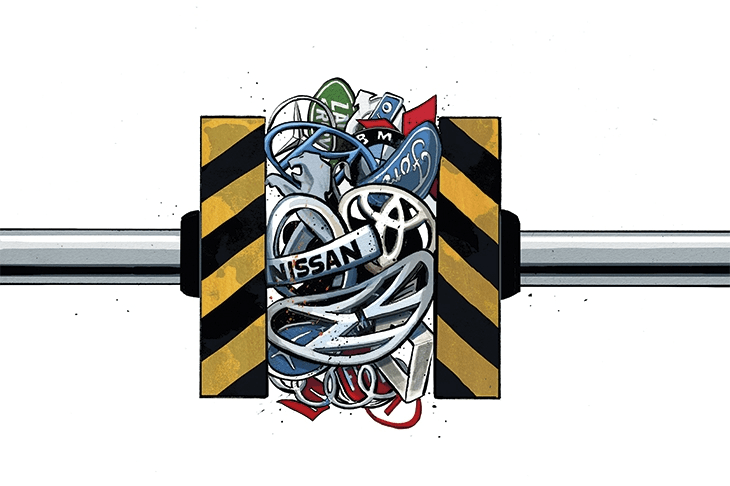Sometimes there is a problem so glaring that you wonder why no one is addressing it.
Sooner or later, the government is going to have to deal with the black hole that will appear in the public finances as a result of the switch to electric cars. True, Jeremy Hunt has announced that electric cars registered from April 2025 onwards will have to pay road tax: £10 in their first year followed by £165 a year from then onwards. But that still leaves disappearing fuel duty. By 2030, according to Office of Budgetary Responsibility (OBR) calculations out today, that will deprive the Treasury of £13 billion a year in lost revenue. Eventually, the lost revenue could grow to £25 billion.
Will the government be happy to forgo this income? Will it cut government spending or tax something else instead? Will it heck. The public finances are in such a state that they are going to need all the revenue it can get. Moreover, it would be difficult simply to shift fuel duty onto electricity because it would mean taxing all the electricity we use. Your fridge and dishwasher would effectively be paying for the roads. The government could tax public chargers (more than the 20 per cent VAT already charged), but that would still leave home-charging lightly-taxed at 5 per cent VAT.
There is an obvious answer: some form of road-pricing – where motorists are charged for each mile they drive, regardless of what form of propulsion they use. This was the conclusion reached by the Commons select committee on transport in a report last year. But the government is still not even talking about this yet – at least not in public. Why not? Partly because every time the issue has been raised in the past it has generated a strong negative reaction. As well as objecting to an additional form of tax, many motorists were unhappy about the idea of their vehicles being tracked around the country, either by number plate recognition (ANPR) cameras or by some other device fitted in their vehicle. It is harder to make a surveillance argument against road-pricing now that every petrol forecourt and numerous roads are fitted with ANPR anyway. Yet the vandalisation of Sadiq Khan’s Ulez cameras shows that it remains an emotional topic for some.
But there is another reason why the government might be shy to introduce the subject of road-pricing at the moment. Were such a system to be introduced now, it would expose the fib that electric cars are cheaper to run than are petrol and diesel equivalents. The world is awash with efforts to compare the running costs of electric versus petrol cars. These often come down in favour of electric cars, though not always. A comparison by the magazine What Car? last November found that a BMW 4 series was 11 per cent cheaper in petrol form when on a long, motorway journey and the electric car had to be charged at a rapid charger at a service station. As for a pair of Peugeot 208s, the petrol one was 28 per cent cheaper.
But one thing that all these comparisons have in common is that they compare the running costs after tax. They don’t compare the underlying, ex-tax costs of running a car. When you take into account the fact that around half the price of a litre of petrol is tax, while electricity is taxed at only five percent or 20 per cent, depending on whether you charge at home or at an electric charger, the numbers change dramatically. Were petrol and electric cars to be taxed equally it would almost always be cheaper to run a petrol car.
Trouble is, that’s not the message the government wants to send when it is trying to persuade us to buy electric cars, and has set a deadline to outlaw sales of new petrol and diesel cars from 2030.
There is a lot to be said for road-pricing. It would allow the price of using the roads to be varied from place to place: i.e., high charges for driving into city centres, low charges for using roads in remote rural places. It would allow all tolls, congestion charges and emissions charges to be rolled into one system – where motorists could be sent a monthly bill, not expected to pay online within 24 hours and heavily fined if they fail. We could have one, easy-to-understand set of charges – say with the road system divided into five classes of road, each with its own tariff.
But it isn’t going to happen so long as the government is worried about deterring people from buying an electric car. Just be aware if you do fall for the sales patter: today’s running costs won’t reflect what it will end up costing once the government does give in to the inevitable and sets up a road-pricing scheme.







Comments